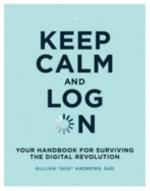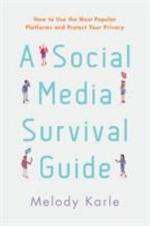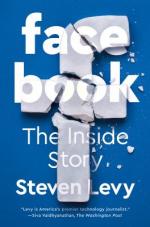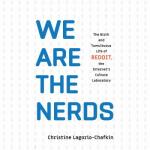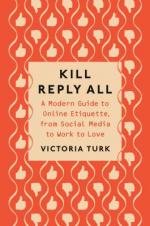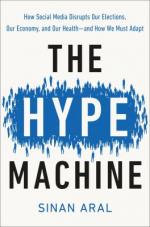January 27, 2021 | sobczakd

Since 2004, social media has played a big role in our culture. But when the pandemic began last year, almost overnight it took on a whole new life of its own. Just like that we had to use Zoom to get together with our family or friends instead of meeting in-person. We logged onto our computers or laptops to work remotely from home. Our kids logged onto Zoom for school sessions. Did you know that your library presents virtual programming!!? Video conferencing services like Zoom, Facebook Live and Youtube has become the world's most popular social network. Whenever the pandemic is over, will things go back to normal or we will prefer to continue remotely? Who knows? Need help navigating through the avalanche of the social media landscape? Check out these resources!
Feeling overwhelmed by an avalanche of online content? Anxious about identity theft? Unsettled by the proliferation of fake news? Welcome to the digital revolution. Wait-wasn't the digital revolution supposed to make our lives better? It was going to be fun and put the world at our fingertips. What happened? Keep Calm and Log On is a survival handbook that will help you achieve online mindfulness and overcome online helplessness-the feeling that tech is out of your control-with tips for handling cybersecurity, creepy ads, untrustworthy information, and much more.
Taking a cue from the famous World War II morale-boosting slogan ("Keep Calm and Carry On"), Gus Andrews shows us how to adapt the techniques our ancestors used to survive hard times, so we can live our best lives online. She explains why media and technology stress us out, and offers empowering tools for coping. Mindfulness practices can help us stay calm and conserve our attention purposefully. Andrews shares the secret of understanding our own opinions'' "family trees" in order to identify misleading "fake news." She provides tools for unplugging occasionally, overcoming feelings that we are "bad at technology," and taking charge of our security and privacy. Andrews explains how social media algorithms keep us from information we need and why "creepy ads" seem to follow us online. Most importantly, she urges us to work to rebuild the trust in our communities that the internet has broken.
The every person's guide to social media... how to use it and what never to do. Are you trying to figure out how to safely use social media but finding yourself struggling? Here's a book specifically designed to help regular people figure out social media platforms. It begins with a chapter about social media basics: how they normally work, why people use them, and general safety tips. It is easy to get confused by the large number of options that are out there so this book breaks down each major network into its own chapter. Chapters are included for: -Facebook -Snapchat -Pinterest -LinkedIn -Instagram -YouTube -Twitter -Reddit, and -Tumblr. Because each social media platform has its their own rules, benefits, and challenges, each chapter gives a summary of the platform and tells the reader why people use it. Next, each chapter has a glossary of terms to explain language and slang that are used. This will help people who are new to social media learn about terminology like subreddits, retweets, and more. If readers decide to use the platform (or already use it and want to learn more), each chapter guides users through a "how-to" of using each platform. This includes the basic functionality, setting up profiles, settings, and odd features that even current users may not know about. Privacy and safety are also covered, with a platform-specific section devoted to these important issues in each chapter. Two final chapters cover other notable social media platforms that readers might want to know about and archiving tips for saving social media posts and information. This book can help people new to social media, people joining new social media, and people who are already on but want to learn how to better manage and protect their accounts.
As a college sophomore, Mark Zuckerberg created a simple website to serve as a campus social network. Today, Facebook is nearly unrecognizable from its first, modest iteration. In light of recent controversies surrounding election-influencing "fake news" accounts, the handling of its users' personal data, and growing discontent with the actions of its founder and CEO--who has enormous power over what the world sees and says--never has a company been more central to the national conversation. Millions of words have been written about Facebook, but no one has told the complete story, documenting its ascendancy and missteps. There is no denying the power and omnipresence of Facebook in American daily life, or the imperative of this book to document the unchecked power and shocking techniques of the company, from growing at all costs to outmaneuvering its biggest rivals to acquire WhatsApp and Instagram, to developing a platform so addictive even some of its own are now beginning to realize its dangers. Based on hundreds of interviews from inside and outside Facebook, Levy's sweeping narrative of incredible entrepreneurial success and failure digs deep into the whole story of the company that has changed the world and reaped the consequences.
Reddit hails itself as "the front page of the Internet." It's the third most-visited website in the United States -- and yet, millions of Americans have no idea what it is. We Are the Nerds is an engrossing look deep inside this captivating, maddening enterprise, whose army of obsessed users have been credited with everything from solving cold case crimes and spurring tens of millions of dollars in charitable donations to seeding alt-right fury and landing Donald Trump in the White House. We Are the Nerds is a gripping start-up narrative: the story of how Reddit's founders, Steve Huffman and Alexis Ohanian, rose up from their suburban childhoods to become millionaires and create an icon of the digital age -- before seeing the site engulfed in controversies and nearly losing control of it for good. Based on Christine Lagorio-Chafkin's exclusive access to founders Ohanian and Huffman, We Are the Nerds is also a compelling exploration of the way we all communicate today -- and how we got here. Reddit and its users have become a mirror of the Internet: it has dingy corners, shiny memes, malicious trolls, and a sometimes heart-melting ability to connect people across cultures, oceans, and ideological divides.
How do you reply to your colleague's weird email? What would Emily Post say about your Tinder profile? And just how do you know if you're mansplaining? In this irreverent journey through the murky world of digital etiquette, Wired's Victoria Turk provides an indispensable guide to minding our manners in a brave new online world, and making peace with the platforms, apps, and devices we love to hate. The digital revolution has put us all within a few clicks, taps, and swipes of one another. But familiarity can breed contempt, and while we're more likely than ever to fall in love online, we're also more likely to fall headfirst into a raging fight with a stranger or into an unhealthy obsession with the phones in our pockets. If you've ever encountered the surreal, aggravating battlefields of digital life and wondered why we all don't go analog, this is the book for you.
MIT professor Sinan Aral isn't only one of the world's leading experts on social media--he's also an entrepreneur and investor, giving him an unparalleled 360-degree view of the technology's great promise as well as its outsize capacity to damage our politics, our economy, and even our personal health. Drawing on two decades of his own research and business experience, Aral goes under the hood of the biggest, most powerful social networks to tackle the critical question of just how much social media actually shapes our choices, for better or worse. Aral shows how the tech behind social media offers the same set of behavior-influencing levers to both Russian hackers and brand marketers--to everyone who hopes to change the way we think and act--which is why its consequences affect everything from elections to business, dating to health. Along the way, he covers a wide array of topics, including how network effects fuel Twitter's and Facebook's massive growth to the neuroscience of how social media affects our brains, the real consequences of fake news, the power of social ratings, and the impact of social media on our kids. In mapping out strategies for being more thoughtful consumers of social media, The Hype Machine offers the definitive guide to understanding and harnessing for good the technology that has redefined our world overnight.

